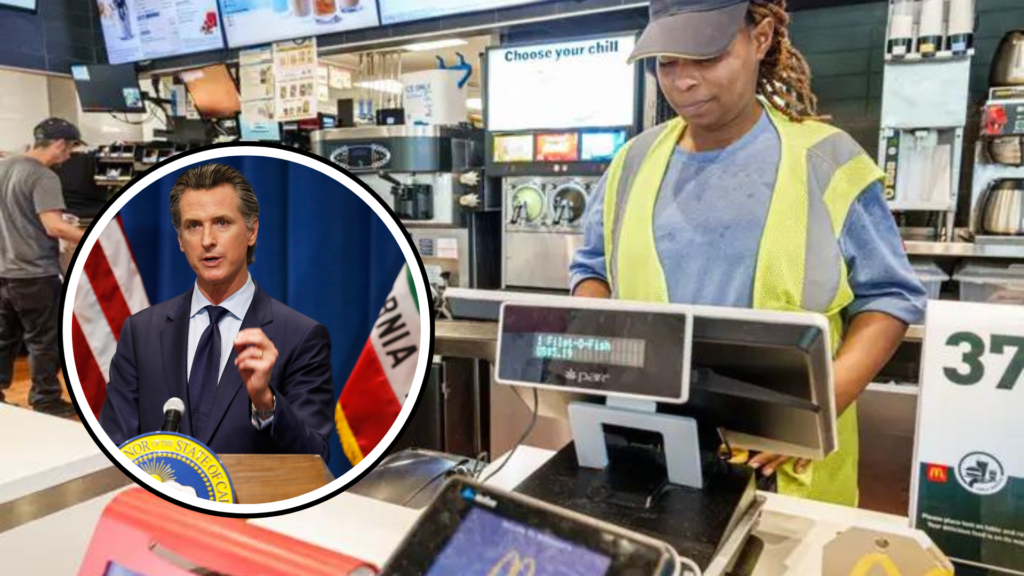
Half a million workers in California are now earning more money thanks to a significant increase in the state’s minimum wage for fast-food employees. The wage has been raised to $20 an hour, giving many workers a 25% raise from just last week. This change affects major restaurant chains like McDonald’s, Pizza Hut, KFC, Subway, and Starbucks, and local franchisees are concerned about the higher labor costs.
According to Capradio, fast-food jobs have historically been among the lowest-paying in the U.S., but wages have been increasing in recent years after decades of stagnation. Many of these workers are women, immigrants, and people of color, often living below the poverty line. For example, Jaylene Loubett, a McDonald’s worker in Los Angeles, highlights the high cost of living in California and her city, coupled with inflation leading to higher expenses for food and bills.
Loubett, who shares a one-bedroom apartment with her parents dealing with medical issues, plans to use her raise to start saving for a bigger home or to alleviate financial stress. The minimum wage for non-fast-food jobs in California remains at $16 an hour, but it varies in different cities and counties. Employers paying less than $20 an hour may face increased competition for workers.
Restaurant chain owners and franchisees in California anticipate challenges due to the higher labor costs, such as raising prices, implementing automation, reducing workers’ hours, or even closing down. Some chains have already laid off delivery drivers and plan to increase prices further. Brian Hom, a franchise owner, expects to raise prices on his menu items to offset the wage increase for his employees.
The wage hike for fast-food workers in California is the result of an agreement between labor leaders and fast-food companies. The new law applies to fast-food chains with at least 60 locations nationwide, with some exemptions for smaller establishments. A Fast Food Council has been established to develop industry standards and regulations, with the hope that this increase in wages will set a precedent for other industries in California and beyond.
While the federal minimum wage remains at $7.25 an hour, states like California are taking the lead in raising minimum wages to improve the livelihoods of workers across different sectors.



